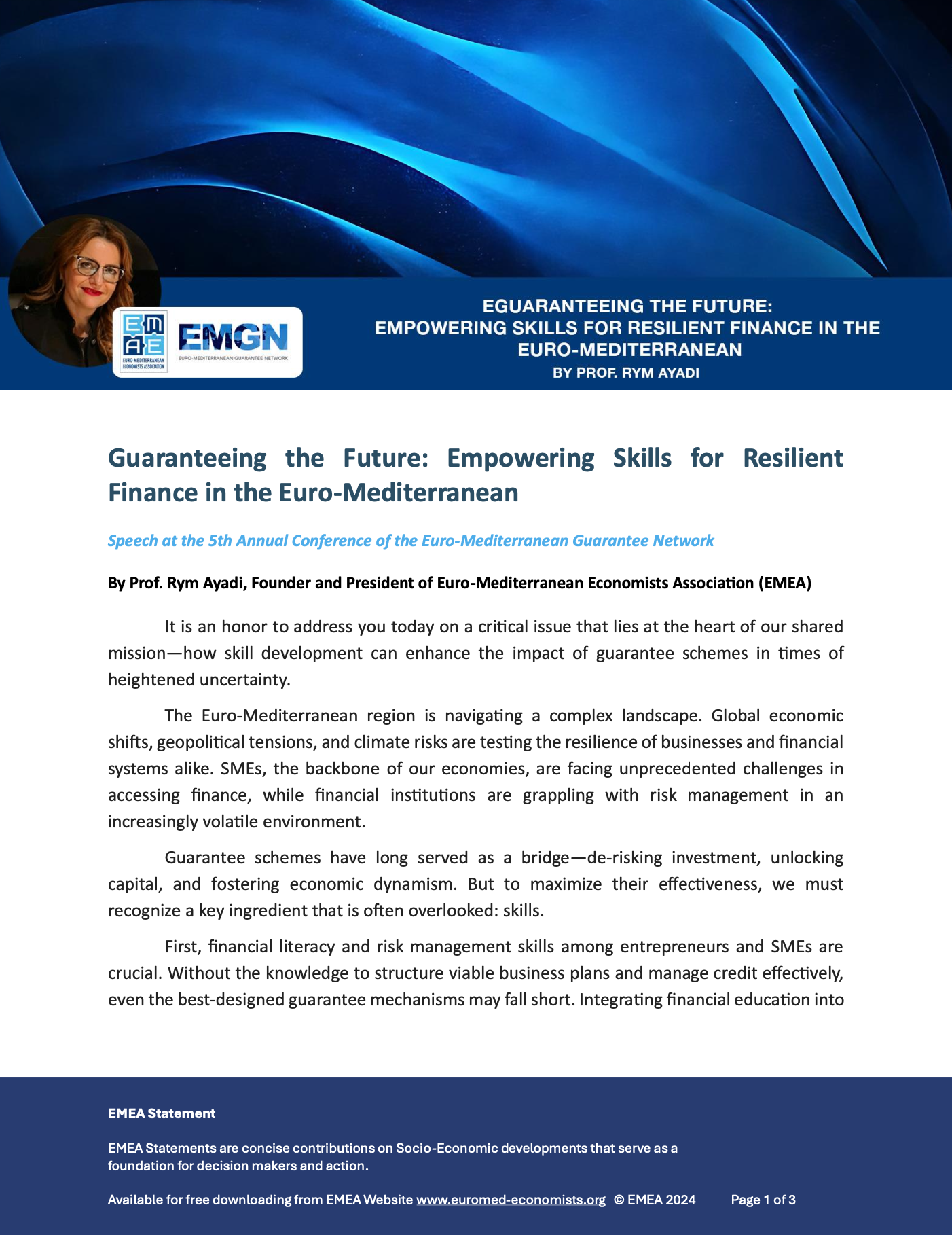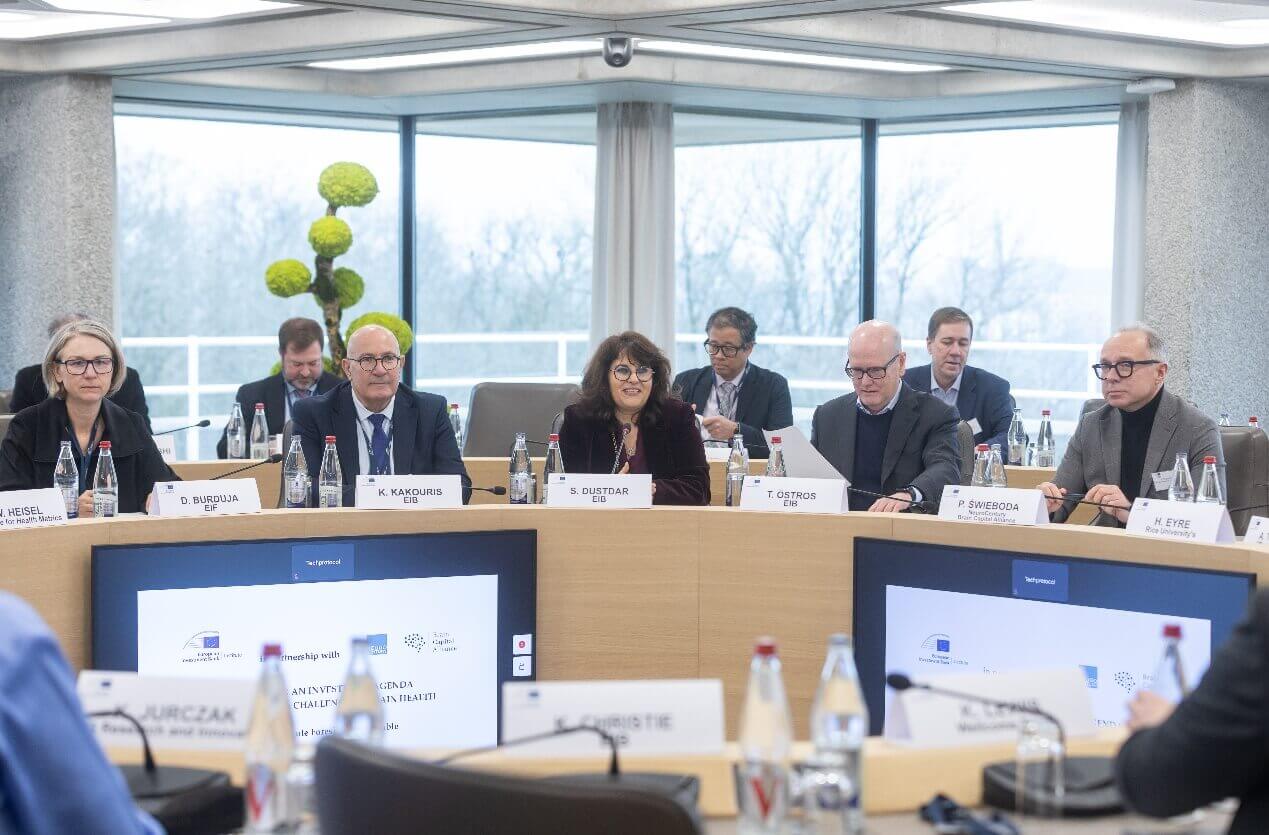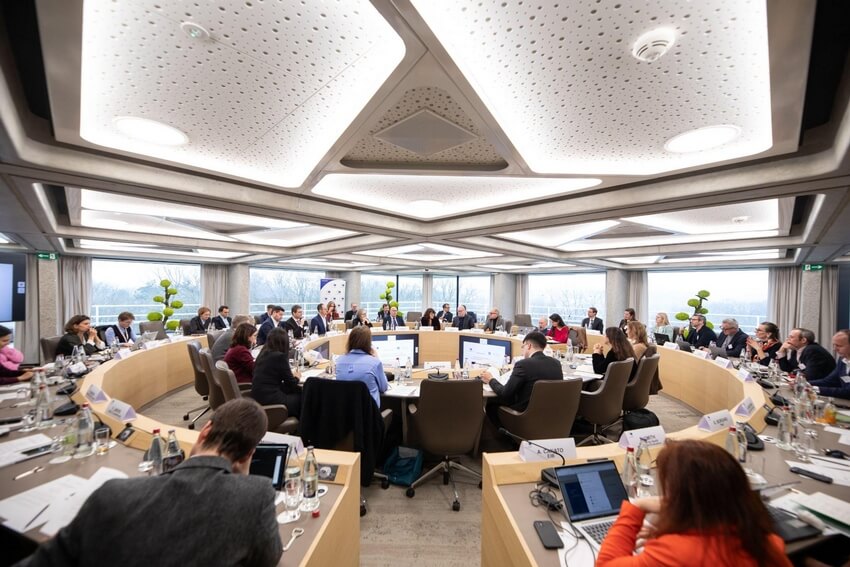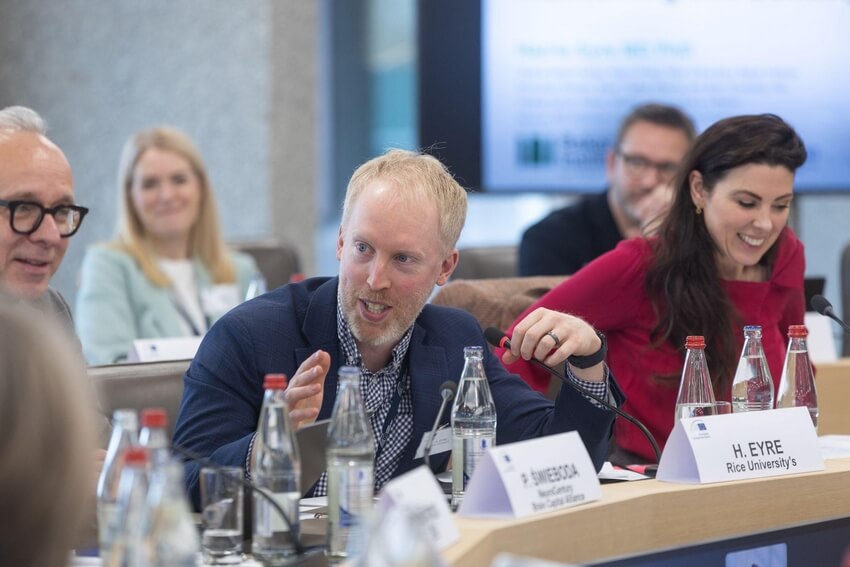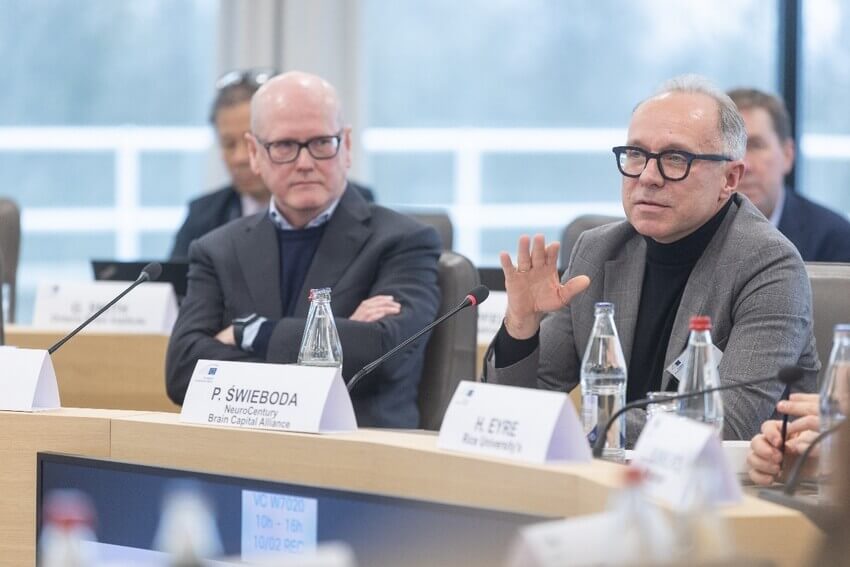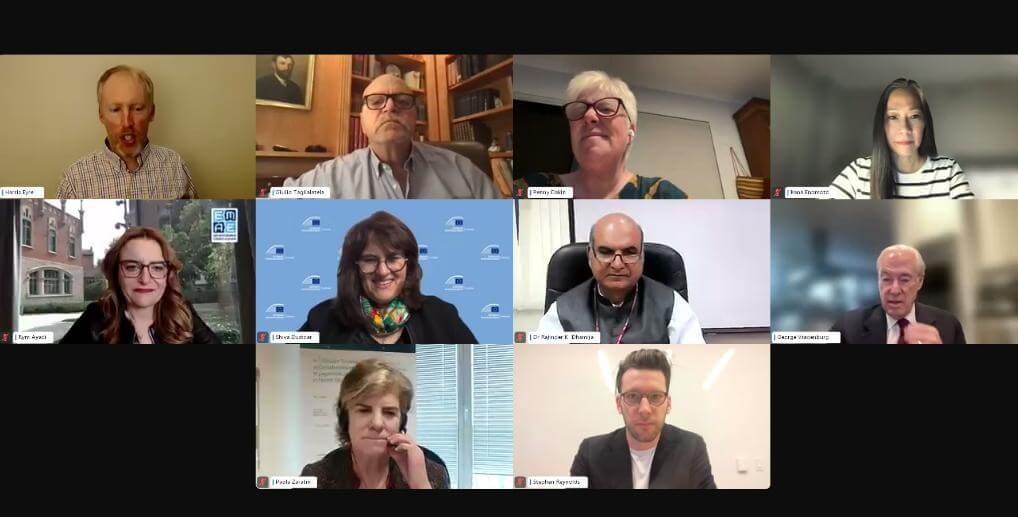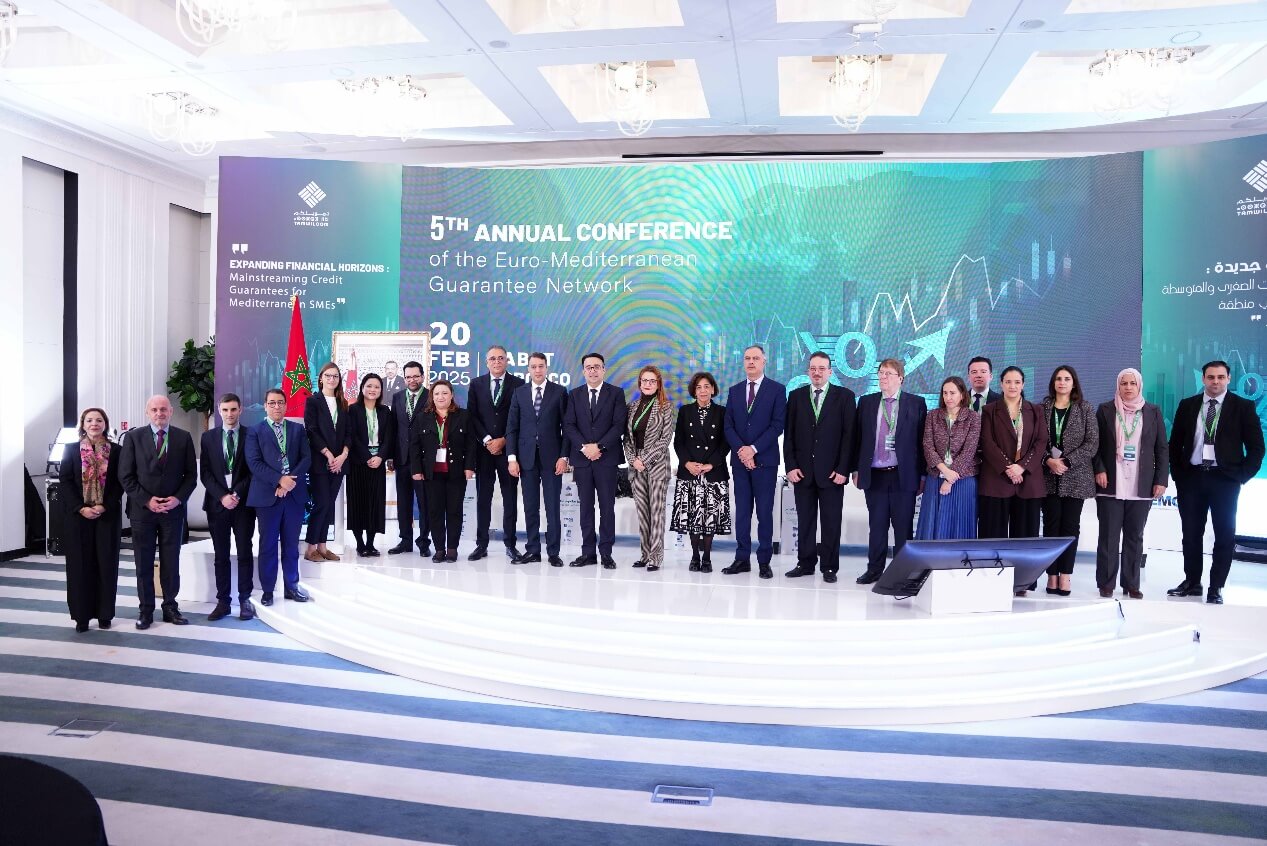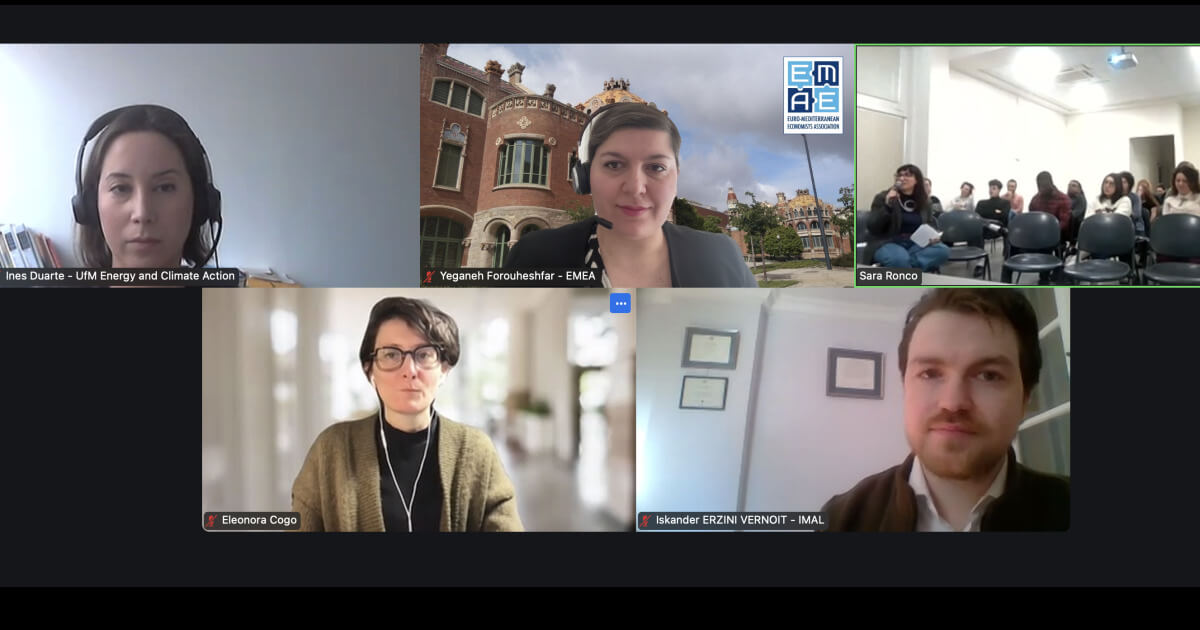The Brain Capital Alliance engaged with the European Investment Bank (EIB), the world’s largest multilateral development bank whose charter is to “future-proof” Europe, in a strategic foresight summit on the brain economy at Bank headquarters in Luxembourg, Europe.
The EIB Institute Foresight Roundtable was titled “Systemic Investing in the Brain Economy: Building an Investment Agenda to Tackle the Challenge of Brain Health”. It included 50 senior experts from the Bank, biopharmaceuticals, medical devices, venture capital, private banking, public policy, academia, and philanthropy. Represented organizations included: World Economic Forum, McKinsey Health Institute, Roche, Merck, Philips, Eli Lilly, European Investment Fund, Wellcome Trust, Wyss Center for Neuro- and Bio-Engineering, and European Commission amongst others.
Over one in three people worldwide are affected by brain conditions, from depression and anxiety in younger populations to stroke and dementia in older adults. The global economic impact is estimated at a staggering $2.1 trillion annually – that is comparable to two-thirds of Indian’s GDP and bound to grow at over 5% annually. A Financial Times article published recently noted that the human mind is in recession and for all the talk of artificial intelligence, it would be wise to remember the returns to boosting brain capital.
Topics discussed included the size and scope of the global challenge of brain health, solutions spanning new drugs, devices, digital tools and diagnostics, physical infrastructure needs for care delivery, intential design of the built environment, and the role of public-private-philanthropic partnerships. A range of investment approaches were considered spanning philanthropy, government funding, venture capital, fund of funds, venture debt, and debt with the goal of articulating a historic investment strategy.
Thomas Ostros, Bank Vice President, noted during the meeting “The EIB’s investments in the health sector are a testament to our unwavering commitment to improving global health outcomes. We will continue to leverage our expertise, partnerships, and financial resources to support innovative and impactful health projects that benefit communities worldwide, including in transversal priorities like the theme of the day: Brain Health”.
Harris Eyre, Executive Director of the Brain Capital Alliance and the Brain Economy Hub, a co-organizer of the event, noted “We are entering a new era shaped by the rise of the brain economy, where brain capital — comprising of brain health and brain skills — serves as the cornerstone of sustainable economic growth. According to the McKinsey Health Institute (MHI), prioritizing brain health and fostering brain capital has the potential to unlock $26 trillion in global economic opportunities by enhancing workforce performance, igniting innovation, and reclaiming millions of years of quality life.” Eyre is an Advisor to the Euro-Mediterranean Economists Association and Lead and Harry Z. Yan and Weiman Gao Senior Fellow for Neuro-Policy at Rice University’s Baker Institute for Public Policy.
Eyre also noted that universities must become proficient in public-private-philanthropic funding models with the turmoil of US Government research grant funding.
Shiva Dustdar, Dean of the EIB Institute, noted, “The urgency to invest in brain health is clear. Brain health is not only a public health concern – it is fundamental to economic resilience. Strong brain and mental wellbeing enhances productivity, retention, and profitability, yet investments remain insufficient”.
Eyre noted, “The EIB Institute is unique in incubating new investment strategies. The EIB is a bank with the horsepower to make a difference in bending the escalating multitrillion-dollar cost of mental and neurological disorders across the lifespan. The Bank pioneered green bonds 15 years ago which are now a greater than $1 trillion dollar finance sector driving real impact. Imagine if we had a brain bond. We should think of the brain economy as the brain community’s answer to the space economy, for example.”
Paweł Świeboda, Founder of NeuroCentury, EMEA Advisor and co-founder of the Brain Capital Alliance underlined that “Given demographic trends and the prevalence of brain disorders in older age, unlocking investment in prevention, discovery science, drug development, psycho-social interventions and infrastructure of care is essential to make our welfare states ready for one of the most consequential challenges this century.”
EIB VP Kyriacos Kakouris closed the session, reinforcing the EIB’s commitment to accelerating investments in brain health to tackle the growing challenges.
Eyre was the senior author of the first peer-reviewed technical paper on the brain economy published in 2020 which proposed an investment plan. He also co-led the early Organisation for Economic Co-Operation and Development (OECD) Neuroscience-Inspired Economics Initiative. Since then, the work has proliferated including major success at the most recent World Economic Forum.
“It’s amazing to see the proposal coming to fruition thanks to the innovative, open minds at the Bank. We hope to take this EIB work to the G7 in Canada in the coming months. This way the US has a seat at the table and we can bring this work home”, exclaimed Eyre, who recently led a G7-wide editorial via the Canadian Science Policy Centre, calling for a G7 Canada Brain Economy Summit. A new editorial on this topic was published by the European Policy Centre on the role of AI in the brain economy. Eyre noted that at the G7 Canada other development finance institutions from other G7 nations, like the US Development Finance Corporation, could help to expand this work and it’s impact.
The Brain Capital Alliance is promoted and co-funded by EMEA, and the President of EMEA, Prof. Rym Ayadi, is a co-founder of the Alliance. The EMEA team, in collaboration with OECD Neuroscience-inspired Policy Initiative, the Brain Capital Alliance, and the Global Brain Capital Dashboard Working Group, has developed the Global Brain Capital Dashboard. The Dashboard aims to quantify and track Brain Capital while also serving as a platform to inspire novel policy innovation.
Link to the Global Brain Capital Dashboard

